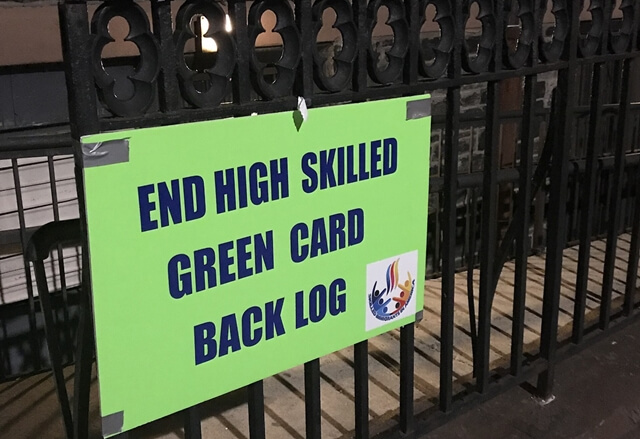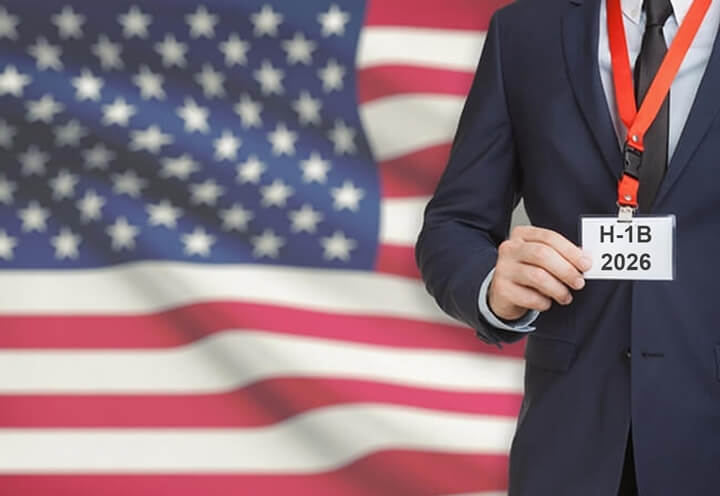Non-immigrant visa holders felt the ordeal of being stuck in the green card backlog intensely during the pandemic, as their entry to the US was heavily restricted by President Biden’s proclamations curbing the import of COVID-19 cases from the affected countries. Consequently, thousands of H1B, H4, L1 and other non-immigrant visa holders were stranded in India, and many of them were separated from their families in the United States. They bore the brunt of long wait times for green cards. If they had got the magic wand (Green Card0, they would have spread a magic mat in the air and travelled to the US flying past all the restrictions.
In a recent development of attempts at phasing out per-country limits on issuance of employment-based green cards, two Senators – Kevin Cramer and John Hickenlooper – introduced a new version of the EAGLE Act 2021. Cleared by the US House Judiciary Committee in April this year, the legislation is now titled EAGLE Act 2022.

Amid a row over the pandemic-induced travel ban on India in 2021, Congresswoman Zoe Lofgren and Republican John Curtis had brought a bipartisan legislation onto the table. The Equal Access to Green cards for Legal Employment Act (HR 3648 EAGLE Act 2021) was aimed at removing the obstacles that are responsible for the mounting backlog of green card applications. Needless to say the obstacles include the fixed 7% country-wise limit on the allocation of employment-based green cards. The HR 3648 EAGLE Act 2021 also addressed the need to raise the per-country cap on issuance of family-based green cards to 15%.
Not the country of origin but skills should be the basis of hiring foreign workers and issuing green cards to them – is the basic premise of the Equal Access to Green cards for Legal Employment Act. Over the years, the US Congress saw several bills seeking phasing out of the per-country cap in order to ensure fair allocation of employment-based green cards. But, none of the bills made a cut. The last bill was the Fairness for High-Skilled Immigrants Act (HR 1044, S386) that gained momentum when Donald Trump’s days were numbered at the White House.
The final version of the combined HR 1044, S386 served as the foundation of the newly introduced bill, HR 3648 EAGLE Act 2021. President Biden’s US Citizenship Act of 2021, which promised a lot to those stuck in the green card logjam, has not yet clicked with the Senate since it was introduced within a few days of Biden’s swearing in to the presidential office. Hence, John Curtis and Zoe Lofgren’s ‘Equal Access to Green cards for Legal Employment Act’ was another big attempt at removing per-country caps on green card allocation.
The HR 3648 EAGLE Act 2021 was vocal about certain advantages to the US economy that fair allocation of employment-based green cards would have ensured. “The basic framework for allocating immigrant visas dates back to the middle of the 20th century and was last seriously updated in 1990,” Congresswoman Lofgren said. “The effect of the per-country caps is that countries with small populations are allocated the same number of immigrant visas as that to skilled labor from a relatively large-population country,” she further said.
“The bipartisan act, if signed into a law, will lead America towards a system that de-emphasizes birthplace and better serves the nation and its economy,” Zoe Lofgren opined while explaining the benefits of the EAGLE Act 2021.
The bill requires the Department of Labor (DOL) to set up a ‘Searchable Internet Website’ where all H1B jobs will be posted for unrestricted public viewing. The website should come up within 180 days from the signing of the bill into a law. The jobs posted on the website will remain live for 30 days from the day of posting and must have such details as education, experience and training required; salary details; employment location and benefits; and application process. Each H1B job post should have a title, a description and occupational classification.
The bill will enable American employers to focus on roping in the best talent from overseas and building great products that will create employment in the country and strengthen the local economy, according to Republican John Curtis.








